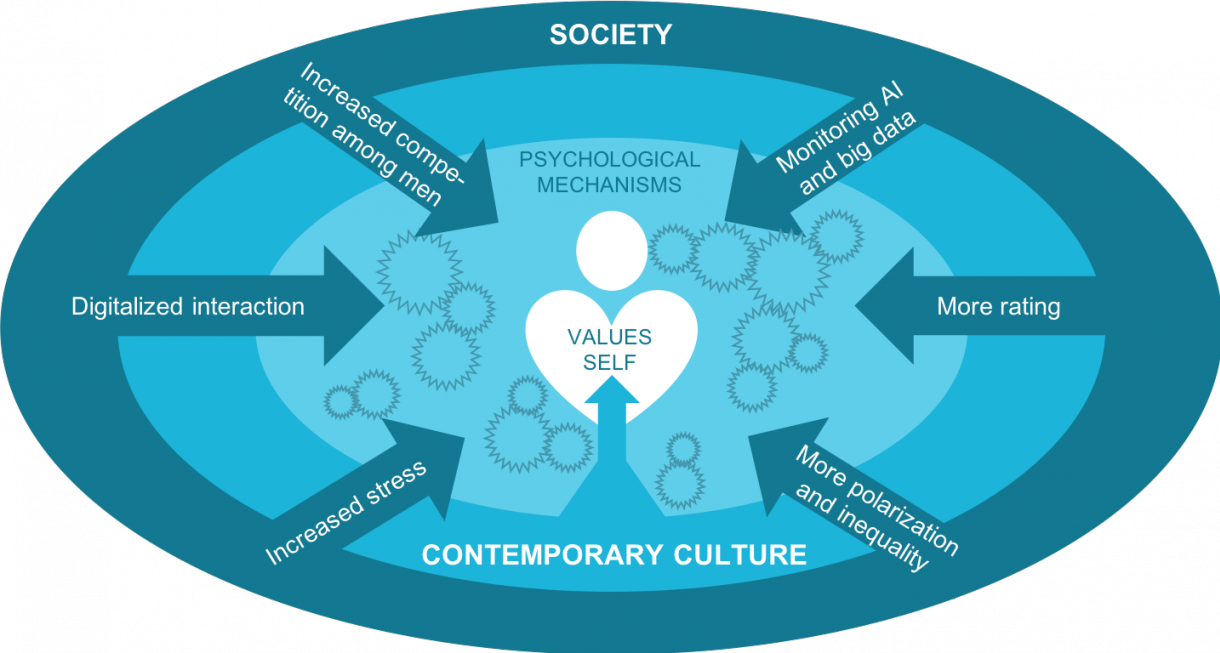Is there a future for honesty?
Honorable 1. In accordance with or characterized by principles of honor; upright 2. Characterized by integrity: guided by a keen sense of duty and ethical conduct Synonyms: ethical, honest, just, righteous, upright
Have you ever been fooled by a stranger? How did it affect your sense of trust for other people? It is a well established fact that societies with a high sense of trust for strangers are more prosperous. Without trust, many human interactions become cumbersome and resource-intensive, not to mention the psychological stress that individuals undergo if they perceive their community to be unsafe. Trust is influenced by several factors, but one’s experience of others’ behavior plays a decisive role. In that sense, honor is trust’s mother. But while political scientists (as well as Kairos Future) continuously monitor the evolution of trust within the country, there are fewer today who study the evolution of trust within individuals: is the future more or less honorable? We searched for answers in two directions based on a model of honor’s underlying factors.

Figure 1: Model over factors that influence humans’ tendency towards honorability. Each of the six pillars represents a trend that, in varying degrees, activates psychological mechanisms in the future.
Psychological mechanisms and six trends
Humans may experience that they have free will, but researchers in behavioral economics and cognitive neuroscience are not convinced. On the contrary, the brain is often triggered by external factors to behave automatically in situations of decision making, if not entirely than at least half. For example, the disposition to act honorably increases if:
- the other person is respected,
- those affected by the decision are in the room,
- someone in the same group acts honorably, or
- there are risks and punishments associated with acting dishonorable.
Dishonorable behavior is triggered if:
- the individual experiences unjust treatment
- the rewards for dishonorable behavior are perceived to be great, or
- the environment where the individual resides places high value on material resources.
So, which of these situations will become more or less common in the future? Six established trends have the following consequences.
More rating when relationships digitalize – Companies and individuals are increasingly being rated based on performance and behavior, not least those who sell their services via digital platforms in the gig economy. This bodes well for honorability, foreshadowing an increase in customers for honorable workers and a decrease for dishonorable ones.
Responsive AI in more environments and flows – if listening robots at home and at work implies more monitoring depends on how regulations and public opinions evolves. However, already today there is an evident increase in the acceptance of survalience if the rewards are great. This too is potential for more honorability.
Increasing stress in private and working life –stress results in more seeking shortcuts, especially if it provides more coveted time or if the workload feels unfairly large. This is potential for dishonorable behavior.
More digital communication and interaction - while social media is making it easier to lie (the perfect life, body, and career for example) and deceive others, digital communication leaves traces of good and bad behavior that others can find. Both honorable and dishonorable will be affected by this trend.
Increased polarization, segregation, heterogeneity, and inequality in society – large differences in living conditions encourage a we-against-them mentality and feelings of unfairness. Segregation decreases the contact between different groups of citizens and prejudices can grow unhindered. This is the single greatest force driving society’s decreasing honorability. From a short-term perspective, this development is negative for honorability and the long-term effects remain to be seen.
Increased competition between men - they are too many and schools are failing to educate them. Men without partners and families are increasing mainly due to the fact that women aren’t attracted by men with low status. A development that is worth lifting because men without a sense of meaning are increasingly involving themselves in criminality and extremism. This is a big obstacle for honorability.
In short, a majority of the trends trigger psychological mechanisms that decrease the prerequisites for honorability.
Honorability in one’s own organization
How can honorability be encouraged in an organization? In a time when organizations value society’s trust ever greater, daily conduct becomes a growing factor. Business cultures also have an impact on society as a whole, not least regarding local welfare bureaucrats who play an important role in trust’s development. Here are five easy tips for encouraging honorability.
- Create an environment where it is safe to speak about mistatkes and missed goals. Failing to do so increases the risk of fraudulent behavior and losing valuable information.
- The power of prejudice is unrivaled – admit your impact on the system and dare to choose the higher road. High status individuals who break norms, change norms.
- Repeal routines and rules that aren’t followed nor followed up. This way, unnecessary feelings of rule-breaking are avoided. The alternative is to start following up, though fewer rules are generally preferred.
- Strengthen the sense of purpose – meaningless tasks challenge the organization’s moral. Put things in a broader context and try to highlight each employee’s role and value for the whole organization. If you can’t find any value then you have discovered a pseudo-job.
- Differences are necessary, but not divisions – reward high performers with moderation.
